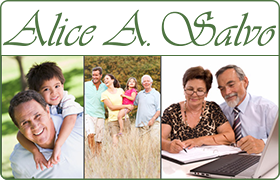Moorpark Estate Lawyer, California
Sponsored Law Firm
-
 x
x

Click For More Info:
-
Law Offices of Alice A. Salvo
20350 Ventura Blvd, Suite 110 Woodland Hills, CA 91364 » view mapLos Angeles County Estate Planning Lawyer A Distinguished and Devoted Legal Practice
Our founding attorney, Alice A. Salvo, has a long list of accomplishments and is highly recognized among the legal and local community for her dedication to estate planning.
800-750-0071  Alice Salvo Woodland Hills, CA
Alice Salvo Woodland Hills, CAAttorney At Law - CA, 1982
Southwestern SOL, J.D. - 1980
 Frequently Asked Questions
Frequently Asked QuestionsQuestions & Answers
 Contact UsEmail or Call 24/7
Contact UsEmail or Call 24/7Call Today For Your Free Consultation
J. Caleb Donner
✓ VERIFIEDEstate, Trusts, Wills & Probate
Caleb has a Bachelor of Arts degree from the University of California, Santa Barbara awarded in 1987. He graduated law school from Pepperdine Univers... (more)
Chuong Ngoc Ho
Lawsuit & Dispute, Trusts, Estate, Divorce & Family Law
Status: In Good Standing Licensed: 24 Years
Denise Ann Houghton
Trusts, Estate, Family Law, Divorce & Family Law
Status: In Good Standing Licensed: 32 Years


 Alice Salvo Woodland Hills, CA
Alice Salvo Woodland Hills, CA Frequently Asked Questions
Frequently Asked Questions Contact UsEmail or Call 24/7
Contact UsEmail or Call 24/7

